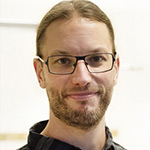This project aims to analyze, clarify and reformulate the ambivalent relationship between dialogue, expertise and power in the management of change work.
Background
There is a broad consensus that Swedish society needs to undergo major changes to meet ecological, economic and social sustainability challenges. But there are many different perceptions about what sustainability means, how the transition should be carried out and what changes are desirable. Due to the fact that the transition is complex and controversial, collaboration between different professions across sector boundaries, constructive public discussions and broad civic participation is needed. Both research and sustainability policy, emphasize the need for dialogue-based forms of governance such as collaboration, deliberation and citizen participation. But in today's polarized and emotionally charged political climate with filter bubbles, polarization and conspiracy theories - sometimes described as the age of posttruth politics - dialogical working methods are made more difficult. This project studies how an emerging group of officials and consultants, so-called dialogue experts, try to realize the dialogical ideals in a time of post-truth politics.
The project
The project aims to unpack, analyze and rethink the uneasy relationship between dialogue, expertise and power in sustainability transformations. To do so we inquire into the practices of the street level workers of democracy: the dialogue experts who are charged with enabling collaboration, deliberation and participation.
We use practice theory, science and technology studies and power theory to develop a better understanding of expertise and power in theories of deliberative democracy and communicative planning.
Thereby the project develops knowledge that can be used by dialogue experts, governance practitioners and policymakers to make conscious choices in the design, facilitation and evaluation of sustainability dialogues.

